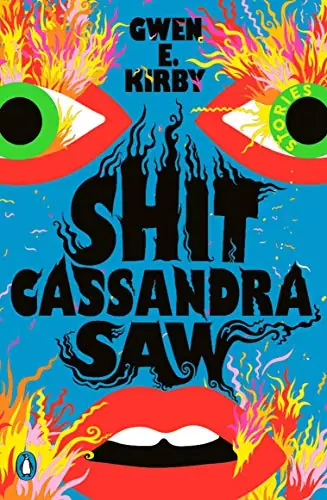The Reading Room is a log of my “writer-as-reader” reactions to the short stories I’m reading now.
The author captures the voice and interior voice of teenage girls really well. In this story three teens are working at a store that resells items from lost baggage — the major industry in their town (!).
These girls don’t work at the most popular lost bagagge store, the one that draws all the visitors. Their is a down-market, knock-off version of it.
Each girl has her own place in the social pecking order, her own dreams for the future, and all this unspools quite naturally.
Interestingly, Kirby ignores the common wisdom that a story has to have a strong point-of-view character and that shifts in perspective must be clearly offset; that an omniscient narrator is a no-no….and it works. I’m going to have to go back and read this again to see why.
OPENING LINES
Kirby is a master of pulling me into the story.
“The girls of the Unclaimed Baggage Dept—Greenleaf, Alabama’s second-best and only other unclaimed baggage story– found Casper in a lime green suitcase.”
Look at the details!! It’s not just a store, it’s the “Unclaimed Baggage Depot–Greenleaf, Alabama’s second best and only other unclaimed baggage store.” It’s not just a suitcase, it’s a lime green suitcase.
We don’t know what or who Casper is. We have to keep reading.
Imagine if this read
“One Monday morning in summer, the girls who worked at an unclaimed baggage store found a [SPOILER ALERT] taxidermized albino wallaby in a suitcase.”
Still an intriguing premise, but ho-hum execution. You’ll have to work MUCH harder to get me to keep reading.
THE MIDDLE
We zig zag between the girls’ hopes and dreams as they first figure out what to do with Casper and deal with the consequences of their actions.
Each scene builds up a stronger picture the girls, individually, and in relation to each other and their town.
CLIMAX AND RESOLUTION
….was a bit unexpected and I’m not sure how I feel about it. My favorite way to feel about a short story!
THE ENDING
Takes us solidly into the perspective of the girl who is most active in the climax, and gives us a really interesting perspective to chew on (from her point of view; her reaction to events) as we close the book or turn the page. I wouldn’t call it a ‘happy’ or ‘sad’ ending, but I was satisfied.
It made me want to come back for more stories from this anthology…but not yet. I want to savor this one for a moment.
Find this story in Sh*t Cassandra Saw by Gwen Kirby



![[Reading Room] Cosmogramma by Courttia Newland](https://storyaday.org/wp-content/uploads/2022/02/Reading-Room-Newland-1200x675.png.webp)

